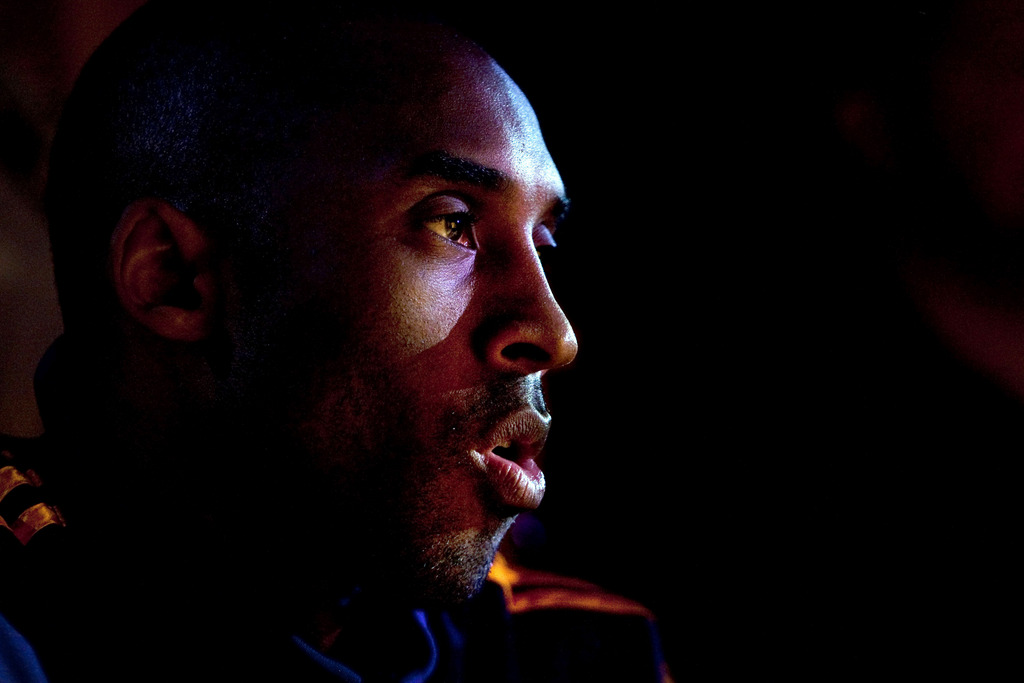[ad_1]
By Mark F. Gray
AFRO Staff Writer
[email protected]
After the 1998 NBA All-Star Game in the old Madison Square Garden, I got my first chance to go one-on-one with Kobe Bryant. It was his first trip to the Association’s mid-winter night’s showcase and he dropped 18 points in his first start, while soaking up as much knowledge as he could from Michael Jordan when the Eastern Conference obliterated the West, 135 to 118.
Many would have celebrated this moment after being the youngest starter in the history of the game at the time, with a solid performance among the world’s best players; yet losing didn’t sit well with him. Prior to making my way to his podium, I asked then Atlanta Hawks guard (now NBA-TV analyst) Steve Smith why the east was able to pull away in the fourth quarter.
“They don’t play any defense out there,” Smith said.
Moments after, when I asked Bryant about Smith’s response, his “Black Mamba” mentality was revealed.

“For real, he said that?” Bryant said with an edge to his voice. “We’ll see about that next year.”
There was no NBA All-Star Game in 1999, but in 2000 Bryant watched as his teammate Shaquille O’Neal and San Antonio Spurs legend Tim Duncan were co-MVP’s. His four steals and lockdown defense in the final quarter propelled the west to a 137-126 win. That was the unofficial moment when Bryant became the face of the NBA.
Kobe was an assassin on the floor and that mindset was the closest to Jordan the league has seen. There were those who didn’t appreciate that the drive to be better than his idol is what made him great, because he dared to boldly proclaim it. He competed against Jordan and never backed down since that was a part of his DNA. The greater the challenge, the harder he worked and ultimately that’s what defined his legacy.
When Bryant entered the league straight from high school it came after his well documented arranged high school prom date with R&B singer, Brandy. He came to the NBA as a renaissance man barely out of puberty. Bryant had lived overseas while his father played, so he was already worldly and spoke four different languages. The “kid” was wise beyond his years, though he wasn’t able to legally drink.
The demands to outwork everybody and his attention to detail is alienated him and made him the subject of criticism. Bryant worried more about making baskets than he did about making friends. His drive to win a championship made him a legend before he turned 30 and by then he was an international icon. He used the 2008 Olympics in Beijing, China as the chance to open his worldwide branding and marketing opportunities, which has now become a huge phenomenon amongst the best players in the game.
When he retired in 2016, there was never any thought about returning to the game. Bryant’s post basketball life was defined by creating business and attacking life as the father of young girls with the same ferocity as he did preparing for the rigors of the NBA. His first animated film won an Oscar, which offered him the opportunity to slam the ignorance of a right wing radio host who felt basketball players shouldn’t stand for social issues by telling her to “shut up and dribble” after claiming his statue on stage.
He rose from the embarrassment of his 2003 sexual assault trial to become one of the biggest advocates for women’s basketball. Never once did Bryant use that as a way to make amends for his actions. But his passion for the WNBA and college basketball was genuine and he openly said there were women who could play in the NBA right now.
There were many moments on the floor of the Staples Center where Bryant captivated fans; however, the memory that now transcends them all that of him talking basketball with his daughter Gianna, showing his passion for developing her game. That moment now stands as a motivator for Black men to be like Kobe when it comes to impacting their daughters’ lives- which is priceless.
Bryant’s death at 41 in such a horrific way doesn’t make sense. He had just begun to impact the world, which is why his death affects so many people across the planet. Kobe’s first act in life was virtuoso. Sadly, his second was cancelled too soon.
[ad_2]
Source link
